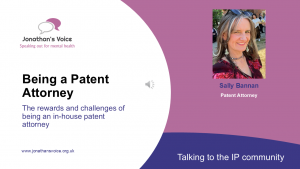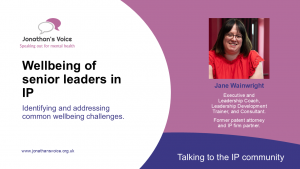A recent article in the i Newspaper (9-Nov-2021) caught my eye: Could a new way of treating suicide have saved my friend?
The journalist recounts the story of meeting a close friend who shared without waning he had tried to kill himself on more than one occasion. His response was to suggest to his friend that he was doing much better now. This is probably not an uncommon response when faced with such a situation. The journalist continues to describe how his attempt at positivity meant he felt he missed the opportunity to talk in more depth with his friend about his real feelings. Sadly, two months later the friend took his own life, leaving the journalist with questions: why did he do it?
The article continues by exploring, why we might be failing to help, specifically in regard to people who are experiencing auditory hallucinations, and asking the question: do we need to actively engage people with auditory hallucinations, not suggest they suppress them? Reading further there is the idea of trying a fresh/ different approach This is pioneering treatment that has yet to be supported by research evidence.
One factor identified in relation to why some people do not seek help is that “often people don’t talk to professionals because they are fearful of being locked up “. Over the last 30 years a branch of psychiatrists and psychotherapists have developed a protocol for this group, called, Talking with Voices therapy: an extension of other approaches e.g Gestalt therapy. There is a study underway into this method by the Psychosis Research Unit at Greater Manchester Mental Health NHS Foundation Trust. This protocol starts with an assessment asking the patient to disclose if and how long they have heard voices. Australian Psychotherapist Matt Ball uses this to then ask the patient what questions they want to ask their suicidal self if this is where their hallucinations are leading them. He then uses a simple relaxation technique, together with listening, to help engage the patient in dialogue about their own suicidal thoughts. The idea is to support the patient rather than trying to eliminate suicidal thoughts related to the auditory hallucinations, to better understand them and try and live peacefully with them. Ball himself recognises that he would not use this approach for someone who was in acute crisis.
The article also highlights an interview with psychiatrist Dr Max Pemberton who suggests that Matt Ball’s approach is “operationalising rather than revolutionising the treatment for such suicidal patients, putting it into a kind of format and applied a framework”. It is important to note however that there are many people with strong suicidal ideation who do not experience any auditory hallucinations. Ball goes onto indicate that he does not have particular concerns about this type of approach, noting that he regards the treatment as more suitable for those experiencing auditory hallucinations who are in a state of “passive” rather than “active” suicidality whom he would regard as less likely to be at acute risk.
Whilst the benefits of this type of approach/ treatment have yet to be fully supported through research evidence, I think it is important to note that the topic of suicide is being ‘spoken’ and written about in the mainstream press, helping to bring it into the open and reduce the stigma.
Jackie Scruton









